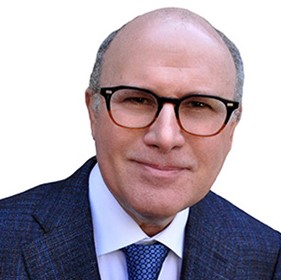Amazon.com’s (AMZN) plans to revolutionize healthcare are starting to come into focus. It should come as no surprise that the Seattle ecommerce giant plans to upend this sector, too. From retail to rocket boosters, upending things is CEO Jeff Bezos’ signature move.
And now, Amazon engineers are working on software that will be capable of reading digitized patient records and clinical notes, according to a Wall Street Journal report from Nov. 27.
In other words, healthcare could become a major new business for Amazon.
The market for storing and analyzing health information is worth $7 billion, according to the WSJ. Amazon Web Services is the leading provider of cloud computing services to businesses. Data storage is in its wheelhouse. The bigger story for Amazon is software.
The new code would beat current efforts in natural language processing. It aims to also recognize handwritten notes from clinicians. To date, misspellings, abbreviations and other jargon have tripped up algorithms. AWS engineers used extensive deep learning, a form of artificial intelligence, to clear this hurdle.
If true, it would give Amazon a significant leg up on competitors IBM (IBM) and UnitedHealth Group (UNH), the two leading players in the processing of digital records.
Amazon has been coy about its healthcare plans. Jeff Bezos, its wily chief executive officer — along with Warren Buffett of Berkshire Hathaway, and Jamie Dimon, chieftain at JPMorgan — announced in January that the firms would work together to tackle healthcare costs. The idea was to use their combined scale and technology to deliver high-quality employee healthcare at a reasonable cost.

Seven months later, Amazon acquired for $1 billion PillPack, a business that presorts medications and then ships them directly to customers’ homes in 49 states.
At the time, industry watchers assumed the online giant was readying for entry in the $400 billion pharmacy business. Given the latest software developments, prescriptions look like a piece of Amazon’s larger healthcare ambitions.
Beyond interest payments on the national debt, healthcare costs are the fastest-growing part of federal spending. The U.S. government spends a staggering $3.2 trillion annually on healthcare. There is a lot of waste in the system, and sadly, there has been little incentive to alter course.
Fortunately, the sector is undergoing a digital transformation.
Related post: Tech giants set to tackle the healthcare crisis
The same process that turned vinyl records into bits of data is spreading throughout healthcare as medical records come online. If history is any indication, better outcomes for end users AND much lower costs are coming.
Amazon is not the only new player …
Alphabet (GOOGL) has a dedicated life sciences business. This subsidiary, called Verily, is working to bring data analytics to drug discovery. The division reached 500 staffers in 2017, and has projects in the works with Sanofi, GlaxoSmithKline and Johnson & Johnson (JNJ).
Its most ambitious project is Baseline, a four-year study to determine why people get sick. The company will track 10,000 participants through every aspect of their lives, on a continuous basis. Engineers even developed a wearable device filled with sensors.
Baseline’s goal is simple: Collect a lot of data, use machine learning to make sense of it, and then put the insights to work to create better outcomes for patients.
It is the same thinking behind a new drug discovery platform being developed by Accenture (ACN). Most investors would not normally associate a global consulting firm with drug discovery, but it is part of an emerging trend. Information technology is intersecting with medical technology in profound new ways. The common ground is data and digital transformation.
For its part, Amazon has been working with hometown Fred Hutchinson Cancer Research center, one of the leading research facilities in the country. Since April, some 60 technicians and researchers have been employed at the Seattle center to help Amazon’s algorithms learn to extract select data from the records of 500,000 anonymized cancer patients.
Eventually, AWS software should be able to automatically identify eligible patients for experimental cancer drugs simply by scanning medical records. While this may seem like a lot of work for an incremental outcome, the key is automation and, ultimately, scale.
Those two factors will go a long way toward reducing the escalating cost of healthcare. Technology firms do automation and scale really well. Better outcomes for governments and end users are on the way.
Best wishes,
Jon D. Markman



